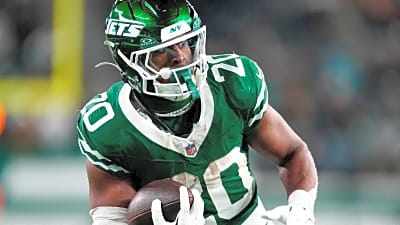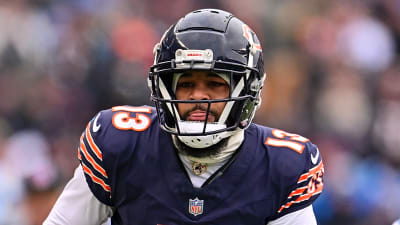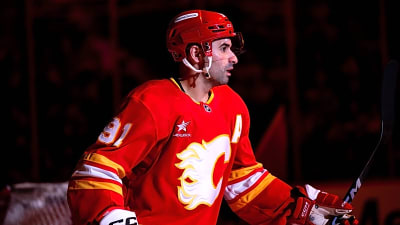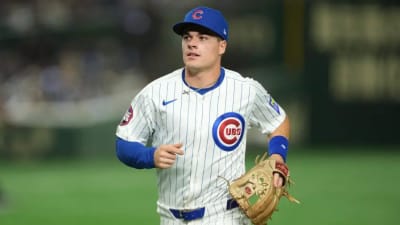
On a cool April evening in Los Angeles, Atlanta Braves manager Brian Snitker leaned against the dugout rail and watched another zero light up the scoreboard. His once-mighty lineup, which not long ago terrorized pitchers across baseball, had been held scoreless yet again. It was an unsettling scene for a franchise that expected to contend.
Coming off years of October runs and even a championship earlier in the decade, the Braves have stumbled badly out of the gate in 2025. A historic offensive slump, a rash of injuries, pitching woes, front office gambles gone wrong, and off-field upheaval have all converged into a perfect storm of underperformance. The result: a team with World Series aspirations waking up in last place at 4–11 by mid-April.
Here’s an in-depth look at five factors driving Atlanta’s early-season spiral – and what they mean moving forward.
1. When the Bats Go Cold: An Unrecognizable Offense
Just two seasons ago, the Braves fielded a juggernaut offense that led MLB in nearly every category and smashed a record-tying 307 home runs in 2023. That lineup was historic – the kind of unit that could erase deficits with one swing. Even in 2024, despite a step back, Atlanta still featured plenty of firepower.
Fast forward to 2025, and the script has flipped. Through the first few weeks, the Braves’ offense has been virtually unrecognizable. The team posted a gaunt 82 wRC+ – well below league average. They endured a 29-inning scoreless drought at one point, their longest since 2007.
Several of Atlanta’s cornerstone hitters are mired in slumps. Matt Olson, a 54-homer slugger in 2023, was batting just .190 with a .333 slugging percentage to start 2025. Ozzie Albies managed only a 53 OPS+, Michael Harris II owned a 51 OPS+, and Austin Riley hit .224 with 17 strikeouts against just three walks. Essentially every key bat aside from a rejuvenated Marcell Ozuna has fallen short.
Launch-angle analytics hint at one culprit: Braves hitters have been under the ball too much, hitting a flurry of harmless fly outs. Opposing pitchers adjusted, attacking with more high fastballs and sliders, exploiting the lineup’s aggressiveness.
The team responded by overhauling its hitting coaching staff last winter, but the shake-up hasn’t sparked a revival. The once-fearsome Braves offense has looked ordinary. The talent is there – this group was historically great not long ago – but early returns raise the question: was 2024’s decline a sign of things to come?
2. The Injury Bug Bites Hard in Atlanta
Injuries are part of baseball, but the Braves have been hit particularly hard. The most impactful absence has been Ronald Acuña Jr., whose electric presence atop the lineup has been sorely missed. He suffered a major knee injury in 2024 and entered 2025 still on the mend, delaying his return.
Spencer Strider, the young strikeout artist expected to front Atlanta’s rotation, is only just returning from elbow surgery that wiped out his 2024 season. His absence left the Braves without their ace when they needed him most.
Newly acquired catcher Sean Murphy – a key part of the offense and pitching game plan – also began the season on the injured list. His absence forced a juggling act behind the plate and removed a middle-of-the-order bat.
Then came the devastating news: right-hander Reynaldo López, one of the team’s top offseason additions, suffered a shoulder injury that could sideline him most of the season. And just five games in, Jurickson Profar was suspended 80 games for a PED violation, eliminating a major offseason acquisition from the mix.
Add it up, and at one point the Braves were without their franchise player, their top pitcher, a cleanup-caliber catcher, a key starter, and a starting outfielder. That’s a massive hit to any team’s competitive chances.
3. Pitching on the Ropes: Rotation and Bullpen Woes
Beyond injuries, Atlanta’s pitching staff has struggled across the board. The departure of Max Fried in free agency left a massive hole atop the rotation. Fried, a World Series hero and Cy Young runner-up, joined the Yankees on a massive eight-year deal. Unlike past departures that Atlanta weathered, this one stung immediately.
To fill the void, Atlanta made a few high-risk moves. They brought in 36-year-old Chris Sale, hoping he had something left. They converted Reynaldo López into a starter and handed a rotation spot to rookie Spencer Schwellenbach. But early returns were rough. Sale showed flashes but also struggled. López was hit hard before getting hurt. Bryce Elder, pressed into service again, continued to fight inconsistency.
The bullpen hasn’t fared much better. Hector Neris, a veteran addition, blew a lead on Opening Day and was designated for assignment days later. Meanwhile, familiar arms like Raisel Iglesias and A.J. Minter struggled to hold slim leads with limited support.
Looking at the numbers, the Braves’ team ERA sat in the bottom third of the league after two weeks. Sale and other starters struggled to pitch deep, exposing a bullpen with no clear bridge to the ninth inning. The lack of depth became even more obvious when López was lost indefinitely.
Strider’s return will help, but the damage from the early weeks is already evident. This isn’t the dominant, deep staff Braves fans are used to. Unless more arms step up – or the front office acts at the deadline – pitching may remain a liability.
4. Front Office Gambles and a Quiet Offseason Backfire
Atlanta’s front office has earned praise for building a young, talented core on team-friendly deals. But after a disappointing 2024, many expected the Braves to be aggressive. Instead, their 2025 offseason was surprisingly quiet.
The team let Max Fried walk, pulled back on spending, and fell below the luxury tax threshold. While fans expected a splash, the front office bet on internal improvement and health. They signed Profar to a three-year deal, took a flier on Sale, and added López. But when Profar was suspended and López injured, those moves fell flat.
The bullpen wasn’t meaningfully upgraded. And instead of signing another frontline starter to replace Fried, Atlanta chose to ride with a patchwork group.
The results speak for themselves. Sale has been inconsistent, the bullpen has struggled, and the team’s lack of rotation depth has been exposed. The Braves are essentially betting on their core returning to form. If they don’t, fans will look back at this winter as a missed opportunity.
5. Leadership Void and Off-Field Turmoil
The Braves’ struggles aren’t just about stats. They’re also dealing with a loss of leadership and identity.
Ron Washington, a beloved coach and energetic presence, departed to manage the Angels. His voice in the clubhouse was missed almost immediately. Players have spoken about maintaining positivity, but something feels different. The vibes aren’t the same.
Freddie Freeman and Dansby Swanson – clubhouse anchors in previous seasons – are long gone. Now with Fried and Washington also gone, the Braves are looking for new leadership. Veterans like Albies and Riley are respected, but leadership isn’t easily replaced.
Profar’s suspension didn’t just impact the lineup. It was a psychological blow to a team already dealing with injuries and high expectations. Early-season finger-pointing, criticism of the front office, and poor performance have all combined to shake the team’s confidence.
Atlanta insists the chemistry is fine, and history shows this team can rally. But that spark – the one that carried them to five straight division titles – hasn’t been there in 2025. Whether they can rediscover it may define the season.
The Road Ahead
The silver lining? It’s only April. There are more than 140 games left on the calendar. Acuña and Strider are returning. Riley and Olson won’t slump forever. And the NL playoff picture remains wide open.
More must-reads:
- Brewers' Jacob Misiorowski continues to set radar gun on fire at unprecedented rate
- Red Sox pitcher sounds off on disgruntled sports bettors
- The 'MLB All-Star Game MVPs' quiz
Breaking News
Trending News
Customize Your Newsletter
 +
+
Get the latest news and rumors, customized to your favorite sports and teams. Emailed daily. Always free!








